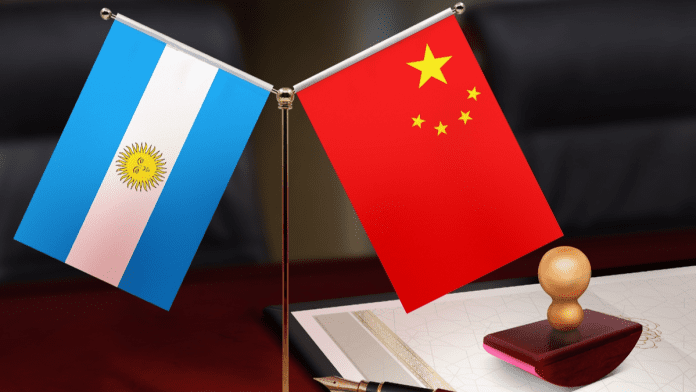In a significant policy shift, Argentina has announced it will no longer require visas from Chinese citizens who already hold valid visas for the United States or European Union. This change, which takes effect immediately, is seen as a fresh overture to China, marking a notable turn in President Javier Milei’s foreign policy. The decision arrives at a time when trade negotiations with the United States remain delayed and tensions with both global powers are high.
New Visa Policy Announced
The new rule allows Chinese nationals with current U.S. or EU visas to travel to Argentina for tourism or business without needing an Argentine visa. Until now, all Chinese visitors — regardless of their visa status in other countries — had to apply separately through Argentina’s full visa process.
This move by President Javier Milei’s administration signals an effort to ease travel and business access for Chinese citizens, while also boosting tourism and investment. Officials see this as a step toward attracting more international partnerships, especially as the country continues to face economic challenges and slow-moving trade talks with the United States.
Ties With China Growing Stronger
The visa change follows renewed cooperation between Argentina and China on major infrastructure efforts. Work has recently resumed on two massive hydroelectric dams — the Jorge Cepernic and Néstor Kirchner projects — in the southern province of Santa Cruz. These projects, which are among the largest Chinese-funded developments in Argentina, had been stalled since late 2023 due to financial and contract disputes.
US Embassy Flags Indian Student Over Private Reddit—Visa Slapped With 221(g)
In March 2024, Chinese construction firm Gezhouba Group suspended its work and withdrew personnel, citing the government’s failure to finalize key agreements. The halt led to thousands of job losses and sparked protests in the region.
Talks resumed earlier this year. In February, Argentina’s Cabinet Chief Guillermo Francos and Santa Cruz Governor Claudio Vidal met privately at the Casa Rosada with Chinese Ambassador Wang Wei and Gezhouba representatives. They discussed a new proposal to unlock further financing from Chinese banks. While exact details remain confidential, officials called the talks “constructive,” and work on the dams has since restarted.
According to the latest government data, the Cepernic dam is now 40% complete, while the Kirchner site stands at 25%. These projects, originally signed under then-President Cristina Fernández de Kirchner in 2014, were paused by Argentina’s Supreme Court, downsized by President Mauricio Macri, and only partially revived under President Alberto Fernández.
NBFC Panic Grows: Visa Clampdown in US, Canada Sparks ₹20,000 Cr Student Loan Crisis
Balancing Act in Foreign Policy
The visa decision also reflects a broader shift in how President Milei is navigating international relations. On the campaign trail in 2023, Milei was openly critical of China, referring to it as a “communist dictatorship” and promising to cut state-to-state ties. But after taking office, his position shifted noticeably.
In late 2024, China extended currency swap agreements worth 35 billion yuan (around US$5 billion), helping Argentina stabilize its foreign reserves and meet International Monetary Fund payment deadlines. That support appears to have influenced the president’s stance, as he later described China as “a very interesting commercial partner.”
At the same time, Milei’s foreign policy has run into friction with the United States. In April 2025, U.S. Special Envoy for Latin America Mauricio Claver-Carone criticized Argentina’s currency deal with China, calling it “extortion.” China responded by accusing the U.S. of trying to create division between Beijing and Latin American countries.
Despite the heated exchanges, Argentina continues to engage with both powers. A senior Chinese official told Clarín earlier this year, “We’re doing well, but not as well as we’d like,” when asked about the state of bilateral relations.
The easing of visa requirements is the clearest sign yet of Argentina’s intent to strengthen its partnership with China — even as it seeks to maintain balance in a complex global landscape.


